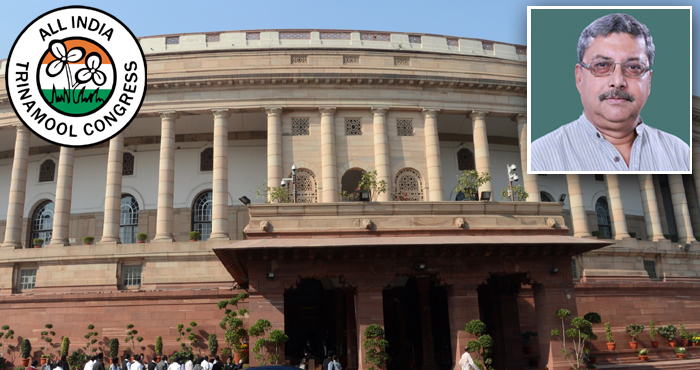Honourable Deputy Speaker,
Sir, I am really obliged that you have given me a chance to speak. I will be very brief. Thank you.
We are in agreement with GST. We have said that if the GST Bill comes, we will agree to it in principle. We have also agreed to the GST Council. But a problem has occurred now. A very pertinent question has arisen. The GST Council is fixing the rate of taxes. But it is neither routed through the Parliament and the State Assemblies nor is it liable for judicial review.
Nobody can question that now. The fixation of rates by the GST Council has become arbitrary. I will give you some illustrations too. The tax rates under the GST are set at 0 per cent, 5 per cent, 12 per cent, 18 per cent and 28 per cent for various goods and services, and almost 40 per cent of goods and services come under the 18 per cent tax rate. So, around 60 per cent of goods and services are in the higher tax brackets. The GST has been introduced with effect from July 1. We have all agreed to that. But how are we passing our post-GST days? In every walk of life the rates have increased by reason of the application of GST. People planning to purchase white goods will have to shell out more money as most appliances and durable goods makers have increased their prices in the new regime under GST.
Services to higher education institutes, utility bills, personal care products, sugar, prepared meals, snacks and sweets, pan, tobacco and 382 intoxicants – where current inflation is already high, the tax incidences too will be higher under GST. These items have around 20 per cent weightage in the CPI basket and could see a one-time transitory inflation hump.
Durable makers would also go for another hike before the festive seasons. Prices of majority of essential drugs have increased by up to 2.29 per cent and in the majority of cases the drugs are not available in the stores. The Government has fixed a GST rate of 12 per cent on most of the essential drugs as against the current tax incidence of around 9 per cent. The prices of essential services have also increased. Overall tax after GST comes to around 18 per cent in comparison to the earlier rate of 12.5 to 15 per cent and even 4 per cent for some retail products. Things which have become more expensive after GST include residential rent, health care and school fees. The total expense ratio of a mutual fund, commonly called the expense ratio of a mutual fund company, has gone up by 3 per cent. Courier services and mobile bills will also cost more. Bank services, credit card services and the renewal of premium for life insurance policies are going to cost higher. The costs of banking and investment management services have also gone up. Basic needs of the common man, like Wi-Fi and DTH services have become costlier. Also, commuting by metro and the online booking of all tickets have become costlier. Footwear costing more than Rs 500 is now being charged GST at 18 per cent while the earlier rate was 14.41 per cent. Garments and clothes have become more expensive.
Movie tickets costing above Rs 100 are attracting a higher tax rate of 28 per cent. The GST on the ticket prices for amusement parks and theme parks has been increased to 28 per cent under GST from the earlier tax of 15 per cent. In media also, there will be an addition of 5 per cent GST while there was no tax earlier. Security, maintenance and legal services’ costs have also gone up. Multiple indirect taxes have also increased the administrative costs for manufacturers and distributors for whom the prices have become higher. It has also increased the costs of langar, the community kitchen and prasad. For consumer sector products like cream, shampoo, television, fridge etc., the net tax has gone up. Earlier, the tax rate was 25 to 27 per cent and now it has gone up to 28 per cent.
So, basically, cheaper items are for the higher society people, and thus, car and other motor making companies have slashed prices of most of its models by up to 3 per cent with immediate effect.
Experts say that CGST and SGST are nothing but new names for Central Excise, Service Tax, VAT and CST. Small and medium enterprises are still not completely aware of the effects of the new tax regime. Changing over to a completely new system of taxation requires an understanding of the new system.
The Honourable Minister for Finance is not here, but the Honourable Law Minister is here. Sir, kindly communicate through the MoS that whether I am in Kolkata or Delhi, all my friends from legal fraternity are asking me one question.

